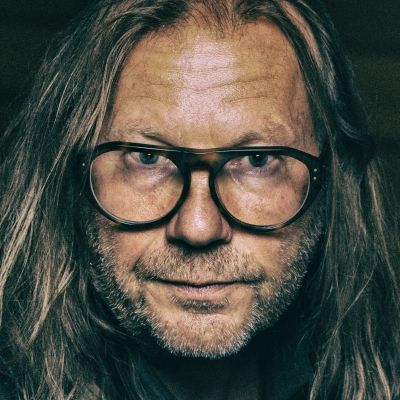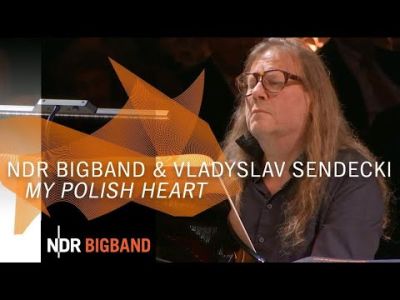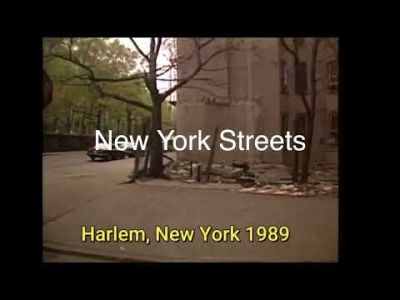Jazz is freedom – Vladyslav “Adzik” Sendecki

Emigration
During the Solidarność period, Adzik Sendecki ran into problems. His passport was taken away, and the state artists’ agency (Pagart) told him that he would no longer be permitted to play abroad. His refusal to perform military service and his anti-communist views meant that he was threatened with imprisonment. No consideration was taken of the fact that he was the only breadwinner in the family. One day, he received a letter with the address of the prison to which he was to report. Even though Sendecki was a well-known musician in Poland, no-one was prepared to openly protect him. During this time, it became clear to him just how many colleagues in his musical environment belonged to or were collaborating with the Office for State Security, (“UB” – Urząd Bezpieczeństwa). He decided to save his family by emigrating. His wife had previously been in Switzerland visiting a friend. After returning, she had immediately submitted an application for another trip abroad and had collected her passport. Two weeks later, Dorota again travelled to Switzerland, taking the two children with her. In the meantime, Adzik was able to obtain a passport via the international event management agency of the Polish State Radio (Polskie Radio) in order to play concerts in the Federal Republic of Germany, which were planned for May 1981. After the performances, he travelled from there to Zurich without a visa. He was joined by his wife and children, and the family spent the summer by Lake Constance.
Adzik immediately received a great deal of support from colleagues in the music scene. At that time, everyone was keen to help Poles fighting for their freedom. His Swiss colleagues soon organised a concert in “Bazillus”, the largest club in Zurich, where the guests included Monty Alexander. After the concert, he told Adzik: “You sound great. Fantastic! You have to go to America”. However, at that time, he didn’t have the strength to emigrate again. In time, Sendecki became a pioneer in the Swiss jazz scene. He recalls that in Switzerland, jazz still tended to be just a hobby, and there were not that many jazz pianists. However, there was a young generation that was eager to learn, and it was exciting to work with the young musicians. Finding a way of earning money to support his family wasn’t easy in Switzerland. For financial reasons, he took on every offer that came his way, and was in high demand as an accompanist. “I was cheap and good”, he explains in an interview with Porta Polonica. It was also difficult to find a place to live for his family. In an unexpected call from the mother of Sławek Kulpowicz, he was told that an apartment had become free in her building. It had a fireplace, and was in the centre of Basel, close to the music academy. Even though the rent was high, he managed to secure the tenancy. From there, they would soon move into other, larger apartments, since the Sendeckis’ third child – their daughter Ola – was born in Switzerland soon afterwards.
A sought-after freelancer
During this time, Billy Cobham came to Switzerland. He was looking for someone to play his set. Sendecki played for Cobham, who was impressed, and told him: “We have plenty of work ahead of us!” They worked intensively together for three years. Sendecki was playing a lot, and was kept very busy. Usually, he accompanied various big names. He succeeded in earning enough money to support himself and his family. As a freelancer, he was given no help from the state. After receiving identity documents for stateless persons in Switzerland, he was allowed to travel, and gave concerts all over the world – in France, Germany, Italy, Sweden, Austria, and the US. He collaborated with outstanding musicians, spent ten months on tour, and took part in festivals and various projects. However, all this work took a negative toll on his family life and he and his wife separated.
He also spent one day a week teaching in a jazz school. His main focus, however, was on expanding his jazz horizon. In 1982, he met Michał Urbaniak and Urszula Dudziak, with whom he performed at the Montreux Jazz Festival. They worked intensively together, playing concerts in Europe and the US. During this time, they also recorded the wonderful album “Recital” in Stockholm in 1983. The next year, Sendecki, Urbaniak and Dudziak released the album “Urbaniax – Burning Circuits” in the UK. In 1989, he recorded another album with Michał Urbaniak, “Songs for Poland”.
“Polski Jazz Ensemble”
For Sendecki, an important milestone from his early years in Switzerland was the founding of the “Polski Jazz Ensemble” formation in Germany in 1983 – shortly after the imposition of martial law in Poland. Since his time in Kraków, he had kept in contact with Janusz Maria Stefański, one of the co-founders of the group, who at that time lived in Germany near Frankfurt/Main. On the day that martial law was imposed, on 13 December 1981, Stefański had given a concert in Frankfurt, and remained there. Like Sendecki, he was in contact with Bronek [Bronisław] Suchanek, who at that time was living in Switzerland, and to Leszek Żądło from Munich. When the four musicians met in Königstein im Taunus, their chemistry was immediately apparent; they were all on the same wavelength. The political situation in Poland brought them even closer together. They had all recently emigrated. They felt a great sense of community and a need to take action, were invited to play everywhere and performed to full concert halls. They donated a portion of their income from the concerts to the Independent Self-Governing Trade Union “Solidarity” (Niezależny Samorządny Związek Zawodowy “Solidarność”, or NSZZ Solidarność). Many Poles came to their concerts who were Solidarność supporters and who had just emigrated. Sendecki recalls that these gatherings were very emotional. During this time, around 1986, an album appeared with their own compositions (i.e. by Stefański, Sendecki, Suchanek and Żądło) and “Rosemary’s Baby” by Krzysztof Komeda.





